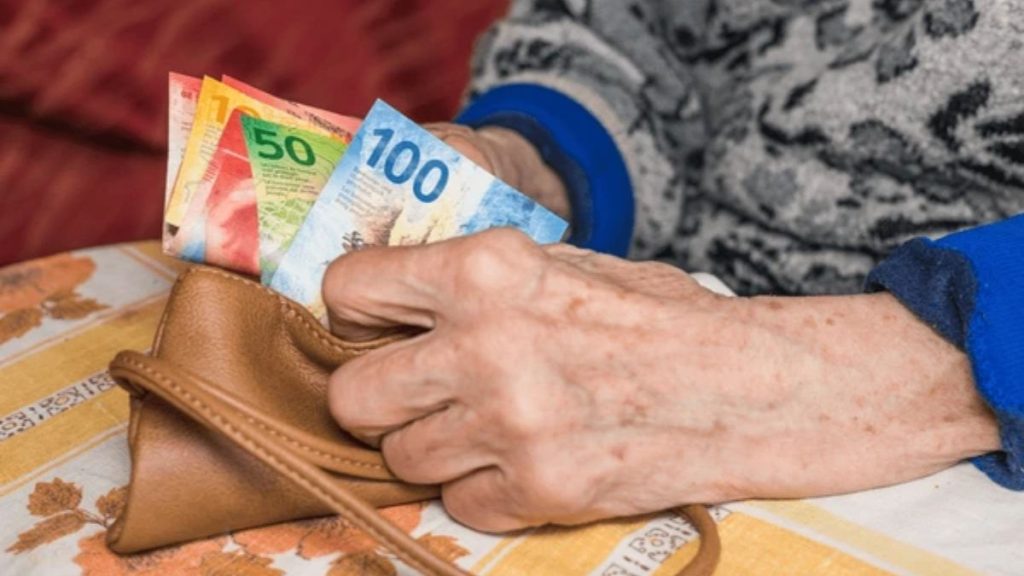Millions of people across the UK are facing increased financial pressures due to chronic health conditions and the rising cost of living. To ease this burden, the Department for Work and Pensions (DWP) has confirmed that individuals suffering from certain medical conditions may qualify for weekly financial support of up to £200 in 2025.
This aid is designed to help vulnerable individuals and households cover everyday expenses such as energy bills, medication costs, transport, and personal care. The DWP has identified 22 major health conditions most commonly linked to successful benefit claims under this scheme.
Why the DWP Introduced This Financial Support

People living with chronic illnesses often face higher daily expenses due to their medical needs. The DWP recognised that traditional benefit payments were not always sufficient for those managing long-term conditions.
The government launched this initiative to address the additional financial strain caused by:
- Rising heating costs for those with circulation or mobility issues.
- Special dietary requirements increasing food expenses.
- Frequent hospital visits requiring paid transport.
- Costs of medications and medical aids not fully covered by the NHS.
By offering up to £200 per week, the DWP aims to ensure people with disabilities and health conditions can maintain independence, dignity, and financial stability throughout 2025.
Quick Overview: DWP £200 Weekly Support 2025
| Category | Details |
|---|---|
| Authority | Department for Work and Pensions (DWP) |
| Type of Support | Disability and health-related benefits (PIP, ESA, DLA, Attendance Allowance) |
| Maximum Weekly Payment | Up to £200 per week (over £10,000 annually) |
| Key Conditions | 22 recognised physical and mental health conditions |
| Eligibility Period | Long-term condition lasting 12+ months |
| Assessment Method | Application, medical documentation, and health evaluation |
| Primary Benefits Covered | PIP, ESA, DLA, Attendance Allowance |
| Status | Active throughout 2025 |
| Official Website | www.gov.uk |
The 22 Health Conditions That Qualify for Support
The DWP has listed 22 primary health conditions that are most likely to lead to successful benefit claims. Each case is assessed individually, but the following illnesses are frequently approved:
- Arthritis and severe joint pain
- Chronic back pain and musculoskeletal disorders
- Chronic obstructive pulmonary disease (COPD)
- Asthma and other long-term respiratory diseases
- Cancer (active treatment or recovery phase)
- Dementia and Alzheimer’s disease
- Parkinson’s disease
- Multiple sclerosis (MS)
- Motor neurone disease (MND)
- Epilepsy with uncontrolled seizures
- Stroke-related impairments
- Severe heart disease or heart failure
- Kidney disease requiring dialysis
- Liver disease
- Diabetes with serious complications
- Severe mental health conditions (bipolar, schizophrenia, clinical depression)
- Autism spectrum disorder (requiring high-level support)
- Learning disabilities requiring daily care
- Severe visual impairment (registered blind)
- Hearing loss with major communication impact
- Chronic fatigue syndrome (ME)
- Immune system disorders (e.g., lupus)
While these conditions are the most common, not everyone with them will automatically qualify. The DWP bases eligibility on how the illness impacts daily life and mobility, not simply the diagnosis itself.
How Much Financial Support Can You Receive?
The total amount of DWP assistance varies depending on the benefit type and severity of the condition. Some individuals may receive payments from multiple benefits, reaching or exceeding £200 per week.
1. Personal Independence Payment (PIP)
- Daily Living Component: £72.65 to £108.55 per week
- Mobility Component: £28.70 to £75.75 per week
2. Employment and Support Allowance (ESA)
- Support Group: Up to £129.50 per week
3. Attendance Allowance (for pensioners)
- Lower rate: £72.65 per week
- Higher rate: £108.55 per week
4. Disability Living Allowance (DLA – for children under 16)
- Variable depending on mobility and care needs
Through these combined benefits, many claimants can receive over £10,000 annually, easing both medical and household expenses.
Who Can Apply for the DWP £200 Weekly Support?
You may qualify for disability-related support if you:
- Have a chronic or long-term medical condition lasting at least 12 months.
- Can demonstrate how the condition affects daily living or mobility.
- Are resident in the UK and meet nationality criteria.
- Provide medical evidence from a GP, consultant, or other healthcare professional.
Evidence can include hospital discharge summaries, prescription lists, physiotherapy notes, or reports confirming ongoing treatment.
Step-by-Step Application Process
Step 1 – Check Eligibility
Review the DWP’s official list of qualifying conditions and assess how your illness impacts your ability to work, move, or perform daily tasks.
Step 2 – Submit Your Claim
Applications can be made:
- Online via the official GOV.UK portal,
- By phone (DWP helpline), or
- By post, using the appropriate paper form.
Step 3 – Provide Medical Evidence
Attach medical certificates, GP letters, hospital records, or proof of medication to support your claim.
Step 4 – Health Assessment
Most claimants must attend a face-to-face or telephone assessment. A DWP health professional evaluates how the condition affects daily function and independence.
Step 5 – Decision and Payment
Once the review is complete, the DWP will confirm eligibility, payment rate, and start date. Successful applicants will receive direct deposit into their bank accounts.
What If Your Application Is Rejected?
If your claim is denied, you still have options:
- Request a Mandatory Reconsideration: Ask the DWP to review the decision.
- Appeal to an Independent Tribunal: Present new or stronger evidence to support your case.
- Get Advice: Contact Citizens Advice, Scope, or other disability support charities for help with documentation and appeals.
Many appeals are successful when claimants provide detailed medical evidence or updated doctor reports.
Why Pensioners Are Among the Largest Beneficiaries
Older adults are especially affected by chronic illnesses such as arthritis, dementia, and heart disease. Pensioners may apply for:
- Attendance Allowance (for those above State Pension age).
- PIP, if their condition started before reaching pension age.
These payments ensure pensioners can afford heating, transport, and care services, which are often essential to their daily wellbeing.
Public Reaction and Policy Debate
The announcement has drawn mixed reactions from the public and welfare experts.
- Supporters say the £200 weekly support is vital to protect people from financial hardship and healthcare costs.
- Critics argue that assessments are too rigid, leaving out genuinely ill individuals.
- Charities like Macmillan and Parkinson’s UK are calling for automatic approval for severe conditions such as terminal cancer or motor neurone disease.
Despite criticism, many view this initiative as a step forward in recognising the true costs of chronic illness in everyday life.
Real-Life Impact: How This Support Changes Lives
For individuals and families dealing with long-term conditions, receiving an additional £200 weekly can be transformative. It helps cover:
- Heating costs during cold months,
- Transport for hospital visits,
- Carer or home assistance,
- Mobility aids or adaptive equipment, and
- Medication expenses not fully covered by the NHS.
Financial security can also reduce stress, improve mental health, and allow people to focus on recovery rather than survival.
Expert Advice for Claimants
- Apply early: Processing times can vary.
- Keep detailed medical records: Regularly update your GP reports.
- Don’t hesitate to appeal: Many initial denials are overturned.
- Seek support: Welfare rights groups can help you navigate paperwork and assessments.
- Review benefits yearly: Conditions and circumstances can change over time.
FAQs – DWP £200 Weekly Support for 22 Health Conditions in 2025
Q1. Who qualifies for the £200 weekly support in 2025?
Anyone with a long-term medical condition that significantly affects daily life or mobility may qualify under DWP benefits such as PIP, ESA, or Attendance Allowance.
Q2. Do I need to apply separately for this payment?
Yes. While some benefits renew automatically, most applicants must submit new claims or reassessments to confirm eligibility.
Q3. Is this payment taxable?
No. DWP disability-related payments are tax-free and do not affect other benefit entitlements.
Q4. How long does it take to receive payments after applying?
Most successful claimants receive payments within 8–12 weeks, though this can vary depending on medical assessments.
Q5. Can children qualify for this support?
Yes. Children under 16 with severe health conditions may qualify under the Disability Living Allowance (DLA).















